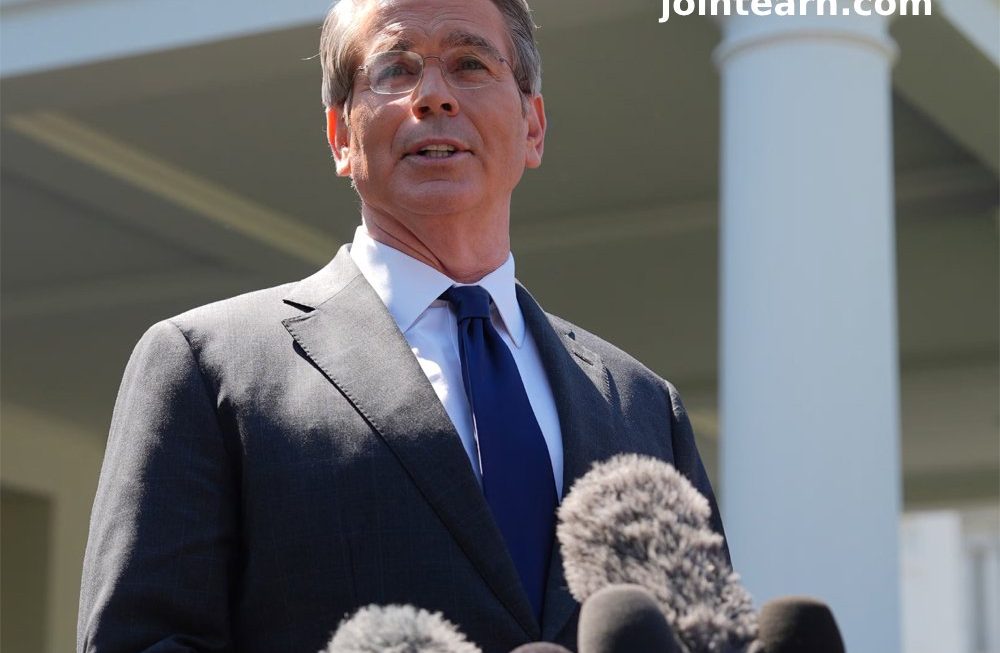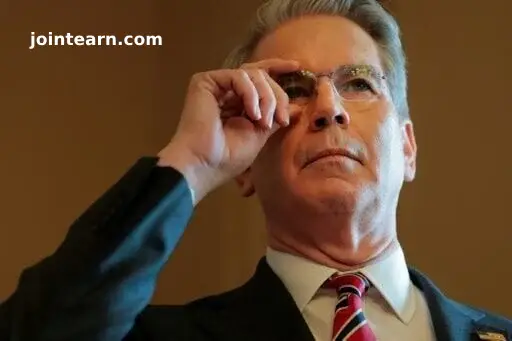U.S. Treasury Secretary Scott Bessent revealed on Monday that one of the first trade deals following President Trump’s aggressive tariff policies is likely to be with India. Speaking to reporters after a series of morning interviews, Bessent confirmed that India is among the priority trading partners in the U.S.’s ongoing push to negotiate new agreements that could ease the impact of Trump’s tariffs on international trade.
Bessent did not offer specific details but suggested that the U.S.-India trade deal could be finalized as soon as this week or next. “I would guess that India would be one of the first trade deals we would sign,” Bessent said during an appearance on CNBC. He also emphasized that President Trump will be heavily involved in each of these bespoke trade agreements with major U.S. trading partners, including India, Japan, and others in Asia.
Trade Negotiations Heating Up with Key Partners
While India is expected to be a frontrunner in U.S. trade negotiations, Bessent also noted substantial talks with Japan and South Korea, highlighting positive progress with these countries. “Vice President Vance was in India last week, talking about substantial progress,” he said, adding that South Korea and Japan are also engaged in ongoing negotiations with the U.S. that may yield deals soon.
The Trump administration has disrupted global trade with a slew of tariffs since taking office, including a 10% tariff on goods from most countries and a sweeping 145% tariff on Chinese imports. These tariffs have led to retaliatory measures, especially from China, complicating the global trading environment. With tariffs on several countries set to escalate after a 90-day pause ends in July 2025, reaching trade deals is becoming urgent.
Bessent has pointed out that discussions with China have shown signs of de-escalation, with Beijing recently exempting certain U.S. goods from its retaliatory tariffs. While the U.S. has refrained from imposing further sanctions, Bessent stressed that the U.S. holds leverage in these negotiations, noting that China sells five times more goods to the U.S. than the other way around.
Trade Deals Under Pressure as Deadline Approaches
The 90-day pause on new tariffs is set to expire on July 8, 2025, unless new trade agreements are reached. As the deadline nears, countries such as South Korea and Japan are facing political pressures, with elections in both countries potentially complicating negotiations. For instance, South Korea has already ruled out agreeing to a comprehensive trade deal before its June 3 presidential election. Similarly, Japan‘s own elections in July may delay any agreement until after the vote.
In the case of India, ongoing trade talks with Britain may also influence the timeline, as Indian officials work to finalize a bilateral agreement with the U.K. after more than three years of negotiations.
The Future of U.S.-China Trade Tensions
Bessent acknowledged that China has recently shown interest in reducing trade tensions, with moves to exempt some U.S. products from retaliatory tariffs. While he did not provide specifics on when negotiations might resume with China, he hinted that it’s up to Beijing to de-escalate the conflict, given its heavy reliance on the U.S. market.
Bessent emphasized that trade deals with nations like India are part of the broader strategy to recalibrate the global trade system, and President Trump remains committed to securing agreements that prioritize U.S. interests.












